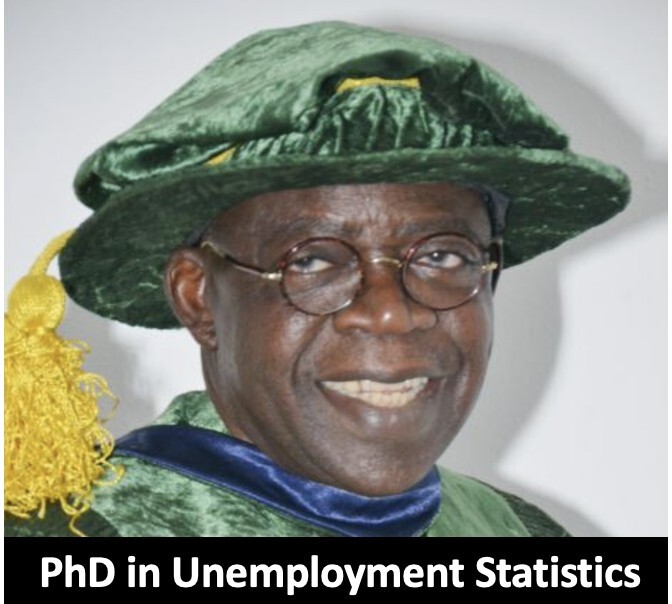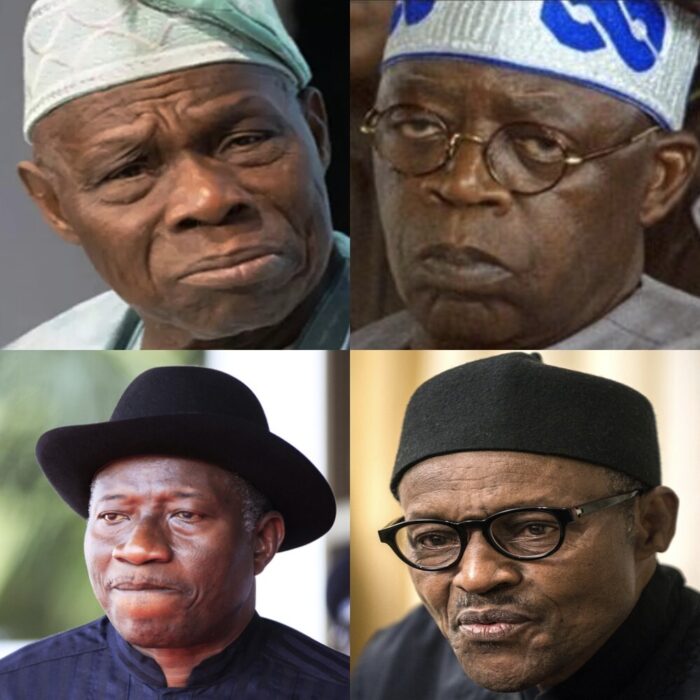By The Editorial Board
Mark Twain’s famous saying, “There are three kinds of lies: lies, damned lies, and statistics,” is particularly relevant when discussing President Tinubu and his troubling habit of distorting data to serve his own interests.
When faced with unfavorable data, President Tinubu’s response is to simply manipulate the numbers, creating fictitious statistics to portray himself in a positive light. A recent instance of this manipulation took place when he was confronted with high unemployment rates.
His solution? He insisted on redefining employment criteria to artificially lower the numbers, according to inside sources who requested anonymity due to their lack of authorization to publicly discuss the matter. This tactic involves selectively altering definitions and other criteria to forge statistics, regardless of the real-world experience of millions of unemployed Nigerians.
Unfortunately, the National Bureau of Statistics (NBS) complied with this request, tarnishing its reputation in the process. Why did the NBS suddenly alter its definition of employment, a practice in place for decades, and only during this administration?
Given the availability of numerous globally acknowledged employment measurement standards, including those established by institutions such as the US Bureau of Labor Statistics (BLS), the Organization for Economic Cooperation and Development (OECD), and the Statistical Office of the European Communities (Eurostat), the question arises: why did the National Bureau of Statistics (NBS) opt to alter the definition provided by the International Labor Office (ILO) instead of, for instance, adopting the methodology employed by the US BLS? The uncomfortable truth is that the chosen approach appears to yield unemployment figures that paint a rosier picture than the actual situation.
Overnight, the unemployment rate miraculously dropped from 33% in 2020 (the last NBS publication) to 4%. Magical.
President Tinubu saw this as problem solved, making it appear as if Nigeria had triumphed over unemployment. However, this was nothing but a bold lie.
This isn’t the first time Tinubu has been accused of manipulating figures. It is alleged that during the presidential election, he exerted pressure on the Independent National Electoral Commission (INEC) to alter vote counts in his favor, ultimately securing the presidency.
It seems that no set of numbers is safe from his manipulation, whether it’s GDP, inflation, the budget, national debt, or even temperature and time.
One can’t help but wonder when, not if, he might instruct the NBS to redefine inflation in the near future, creating a new metric to present a more favorable picture, regardless of the skyrocketing costs of essential goods, rising education expenses, and homelessness caused by soaring rents. This could result in the inflation rate miraculously dropping from 25% to less than 1% overnight, magically reducing the cost of fuel, transportation, food, medicine, and more.
Tinubu’s history of distorting figures, whether related to his age, educational qualifications, wealth, or votes, erodes trust in his leadership. It is even suggested that the NBS keeps two sets of records – one for public consumption, which they call the “Tinubu magical numbers,” and another containing the true, unaltered data.
Thankfully, both the Nigerian public and the international community are not buying into this rampant fraudulent manipulation. Most believe that the unemployment rate has worsened under Tinubu’s leadership, with his impulsive removal of fuel subsidy, without remedies, and poorly timed currency devaluation exacerbating economic challenges. The consequences of his rash policies have resulted in business closures, layoffs, and a growing population of unemployed Nigerians.
President Tinubu needs to venture out onto the streets to witness the harsh reality firsthand: countless young graduates without job prospects. Falsifying unemployment rates will not resolve Nigeria’s employment crisis or build trust in his government. Playing with numbers amounts to a betrayal of the nation and public trust.
As a nation, we require a president who makes tough decisions based on honest data, not misleading and fabricated statistics that can have dire consequences. Tinubu’s statistical deceit is not only ethically wrong but also dangerous and a disservice to the Nigerian people.
Every day, the president and his administration inundate us with numbers. However, how can we trust these figures when the president has a reputation for being a serial fabricator of statistics? Moreover, what will international investors and lenders think of Nigerian data? International stakeholders can discern deception, and public confidence in Tinubu’s integrity has already dissipated, much like his manipulated unemployment rate.
Tinubu’s data manipulators should not have the final say in shaping our lives. Ultimately, data are just numbers, devoid of meaning when twisted for personal gain. It should be clear that Tinubu cannot deceive us; we will expose his deceptive tactics.
Mr. Tinubu, it is now the moment for you to honor your responsibilities as President and liberate yourself from this recurring pattern of deception. It’s time to stop underestimating the Nigerian people and cease affronting our intelligence. We have reached a breaking point, and we demand better.
Redirect the efforts of your administration toward addressing the multitude of genuine issues plaguing Nigerians: breathe new life into a sluggish economy, curtail inflation, cease the practice of borrowing to service existing debts, channel resources into infrastructure development, and clamp down on corruption as you once asserted knowledge of those responsible for embezzling fuel subsidy funds. Nigerians insist on accountability for the approximately $25 billion allegedly misappropriated in the fuel subsidy scandal.
It’s time to roll up your sleeves and get to work, Mr. President.





